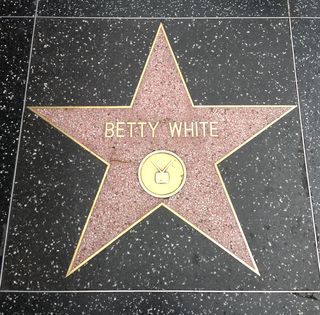California is known for being different – a place where stars rise and fall every day, working hard to make a name for themselves, then smearing it all over town.
How does this relate to your VA benefits law practice?
 I spent four days in L.A. in an effort to interview a big name who would propel my TV show, "Senior Salute," to new levels. The better the show is, the more it can help a broader audience of caregivers and people who are aging.
I spent four days in L.A. in an effort to interview a big name who would propel my TV show, "Senior Salute," to new levels. The better the show is, the more it can help a broader audience of caregivers and people who are aging.
I had a date for the interview, but no set time. I spent time and money to be present for the meeting, even hiring a local makeup artist to come to my hotel to dress me up. The interview didn't happen. So, why was I there for four long days when I could have been with my family or at the office?
My agent strung me along with little to no communication. It wasn't intentional, but it was frustrating nonetheless.
And it raised a question: How often do you string your clients along without communicating?
I arrived on a Tuesday night for a Wednesday interview. No word from my agent until 11:23 a.m. Wednesday saying, "Not today." At 8:16 p.m., new message received: "Just heard back, we are in for Friday afternoon." The next day, Thursday, February 27, next message, "Are you here tomorrow? They are getting us in about 3:00." Friday morning, no news. I call for a status and my agent tells me we are still only about a 50/50 chance. By 3:00 I knew there was no interview, but not because my agent told me, because if there had been one I would already have received my special pass. Instead, I used a ticket I got on the Internet to watch from the general audience the live filming of a show that night, featuring my big-name star. No VIP status.
Reading the above, it looks like there was constant communication. And if I had complained to my agent about not hearing from her, she would have argued that she was doing everything she could and telling me everything she knew. The problem, from the client perspective, is that she was telling me projections, possibilities and hopeful deliverables. What I wanted were the details of her efforts, the positive and negative conversations between her and her "contacts," so I could set up my own expectations and not feel so duped when the interview didn't take place.
How often and how detailed are you when communicating with your clients? Only when you have good news? Only when you need something from them? Only when they are calling you?
The VA application process can take an uncertain amount of time, sometimes more than nine months. Getting that monthly check to pay for care is the client's only focus, and you are the means of achieving that. It's very much like getting that interview, with my agent being my vessel. Even when there is no new news, clients want to hear that, which is why our office calls the VA each month for a status and then passes the information to our waiting clients. Just showing the details of our efforts is enough to keep them content, if not yet satisfied with the results.
Thus, my lessons from L.A. include:
1. Set and manage client expectations;
2. Use clear, constant and honest communication;
3. And understand the unspoken gratitude from your clients when they are aware of your efforts.
P.S. While at the show, I even took actions to "do it myself" by approaching the set's floor supervisor to plead my case. One of the worst things that can happen is when clients take matters into their own hands because they have lost confidence in you. It rarely makes a difference in the result. It didn't in mine.
Victoria L. Collier is a Veteran and Certified Elder Law Attorney, Fellow of the National Academy of Elder Law Attorneys, Co-Founder of Lawyers With Purpose LLC, and author of “47 Secret Veterans’ Benefits for Seniors—Benefits You Have Earned … but Don’t Know About.”



Add a Comment